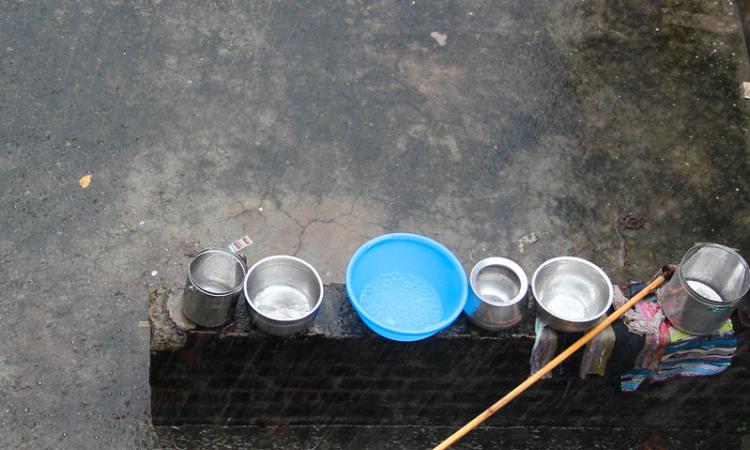
Jal Shakti Abhiyan: Catch the Rain campaign, 2022 launched during the 3rd National Water Awards
President Ram Nath Kovind launched the 'Jal Shakti Abhiyan: Catch the Rain campaign, 2022' while presenting the 3rd National Water Awards.
Aiming to make the campaign the biggest water conservation campaign ever, he emphasized the role the district magistrates and village sarpanches need to play in encouraging the local populace to participate actively in water conservation work.
The campaign is an extension of the Jal Shakti Abhiyan launched in 2019 to make water everyone's business and to make the Jal Andolan a mass movement. In addition, the President awarded Uttar Pradesh with the best state award for water conservation, followed by Rajasthan and Tamil Nadu. (Livemint)
Delhi Budget 2022-23: Outlay for water and sanitation doubles to Rs 6,710 crore
The Delhi government has allocated Rs 6,710 crore in the Budget 2022-23 for the clean-up of Yamuna river in the next two years and uninterrupted supply of water to all households by 2025.
The allocation for water and sanitation is 104 percent more than the Rs 3,274 crore set aside in 2021-22. In order to prevent sewage from entering the Yamuna river, the government plans to either treat it in STPs or convert it into clean water through in-situ treatment.
Also, by the end of this year, all unauthorised colonies in the capital will be connected to the sewer network. Of 1,799 unauthorised colonies in the capital, sewer lines have been laid and commissioned in 706 while work is underway in 448. A total of Rs 266 crore are also earmarked for the environment and forest sectors in the budget. (The Print)
Under NRCP, Centre sanctions Rs 88 crore for Godavari river clean-up
As part of the National River Conservation Plan (NCRP), the Jal Shakti Ministry has given administrative approval and sanctioned over Rs 88 crore for the project ‘Pollution Abatement and Conservation of River Godavari’ at Rajamahendravaram, Andhra Pradesh. While the Rajamahendravaram Municipal Corporation (RMC) and the state government would oversee the project implementation, the Centre would provide 60 percent of funds for the project and the rest would be spent by the state government.
The project envisages construction of sewage treatment plants (STP), underground drainage system and diversion facilities to ensure approximately 150 MLD of sewage does not contaminate the river.
(The New Indian Express)
Centre's Namami Gange funds remain unused, STPs don't function in Patna: CAG slams Bihar Govt
The Comptroller and Auditor General (CAG) has slammed the Bihar government for leaving around Rs. 684 crore under the Centre's Namami Gange program untouched for four years by the Bihar State Ganga River Conservation and Programme Management Society (BGCMS).
According to the audit, only 16 to 50% of the funds were being used (annually) from 2016-17 to 2019-20 and the National Mission for Clean Ganga (NMCG) continued to release next installments without ensuring utilisation of previous installments.
It was also noted that the installed treatment capacity of Patna's sewage treatment plants (STPs) is insufficient for handling the current discharge of effluents. Despite the current effluent discharge of 628.50 million litres per day (MLD) in the state capital, the STPs are designed to treat only 350 million litres per day. (NDTV, Hindustan Times)
Penalties for those wasting water in UP's Pilibhit district
The Pilibhit district administration decided to penalise water wastage at automobile service stations and public places due to the possibility of harsher summer climate this year.
It is the first district in the state to take such an initiative. Although the penalty will be decided soon, the administration has mandated that automobile service stations in the district use soak pits to recharge the water used in washing cars and bikes.
The establishment of a new service station will also require the approval of the irrigation department as well as the provision of a soak pit. In addition to addressing issues of broken water pipes and overflowing faucets, the administration plans to impose a ban on planting eucalyptus in the district as it consumes large amounts of groundwater, and to launch mass awareness campaigns among farmers to replace eucalyptus. (India TV)
This is a roundup of important policy matters from March 23 – April 4, 2022. Also, read the news this fortnight.